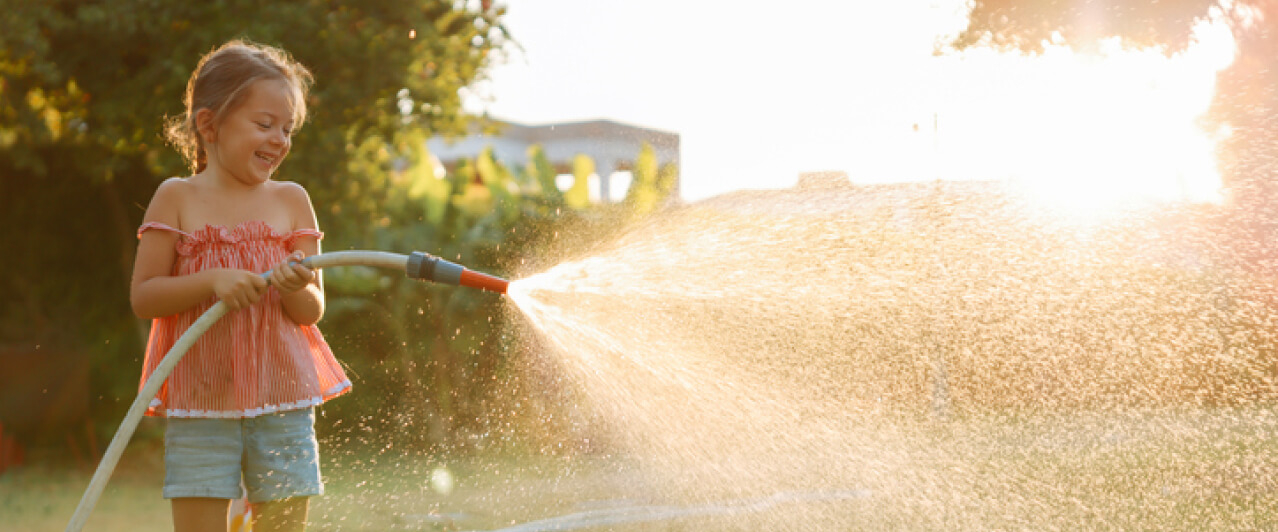All Frequently Asked Questions
Who is responsible in an apartment complex?
All multi-residential housing complex residents are responsible for reducing their personal water use and complying with all water-use restrictions. Landlords are typically responsible for repairs to the plumbing or leaks on the customer service line.
If you have any questions about what you are responsible for as a tenant, please check with your landlord.
Are there other restrictions I should be aware of?
Water restrictions may impact you outside of the home, too. For example:
- Restaurants are restricted from serving water unless a customer requests it.
- Hotels and motels must offer guests the option of not having towels and linens laundered daily.
- Commercial, industrial, and institutional properties cannot irrigate non-functional turf.
Why does my water appear milky or cloudy?
Occasionally, trapped (or entrained) air will be noticeable in tap water. This is due to air dissolved into the water at its source, which can turn into bubbles after the water leaves your tap. These bubbles may make your water temporarily appear cloudy. Both the bubbles and cloudiness are harmless and will disappear when allowed to sit, similar to how the bubbles in soda will dissipate over time.
You can confirm that the cloudiness of your water is caused by air in the water line by performing a simple experiment. Fill a clean glass with cold tap water and let it sit on the counter. Watch the cloudiness clear as the bubbles dissipate. If it starts to clear from the bottom of the glass first, this confirms that the cloudiness was nothing but air.
Air in Water Lines
If cloudy water is accompanied by sputtering from the faucet, there may be air trapped in the water line. If you have had recent plumbing work done, the air may be in your home plumbing. This should clear as the water is used.
Air may also become trapped in the line after Cal Water does work on a water main. This also will clear as the water is used, but if it does not or if the sputtering is accompanied by sediment in your water, please contact us.
Testing Your Water
Cal Water cannot recommend one water quality testing laboratory over another; however, if you would like to have your water tested, you should use a State-certified laboratory. More information is available on our Water Quality Testing Labs page.
Additional Information
More information on air trapped in water is available here:
What causes the spots on my dishes?
Spots are caused by hard water, or minerals that remain after the water has evaporated. Spots can be eliminated through use of a dishwasher rinse agent.
Should I buy a water softener?
The hardness of water varies with the water’s source. The choice to buy a softener is an aesthetic one, since hard water is not harmful to health. However, water softeners typically increase the sodium content of the water, a factor that should be considered by people on low-sodium diets.
Should I buy a home filtration unit?
According to the United States Environmental Protection Agency (EPA), home treatment units are rarely necessary for health reasons. Most often, water treatment units are used to remove substances that affect the aesthetic qualities of the water. If you do choose to install a home treatment unit, it is important to follow the manufacturer’s maintenance instructions, because improperly maintained units can actually cause water quality problems.
What should I do if my coffee has an oily appearance?
Clean your coffee maker with vinegar and water as directed by the manufacturer.
Is bottled water higher quality than tap water?
Tap water providers and bottled water providers must meet the same water quality standards. In fact, tap water providers are required to conduct more frequent water quality testing and reporting than bottled water providers. Some consumers prefer the taste of bottled water, and some choose bottled water because they have special health needs. But tap water is a much better deal, costing 1,000 times less than bottled water.

